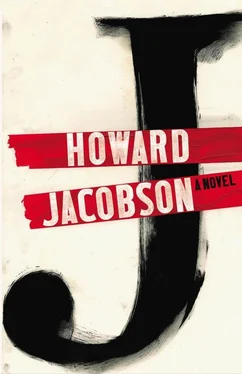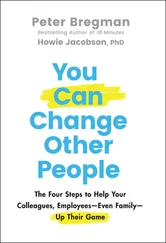She knew she was lucky to be with someone who cared about her happiness. She wasn’t used to it. Her mother by adoption meant well by her but lost interest quickly. She would have had no attitude, or at least expressed no opinion, in the matter of Kevern Cohen. She never spoke of Ailinn’s future, a job, possible husbands, children. It was as though she’d given Ailinn a life by rescuing her from the orphanage and that was that. Satisfying her conscience, it felt like, needing to perform a charitable act, and once performed, her responsibility was at an end. What, if anything, followed, was of no consequence or interest to her. So there were levels of concern Ailinn accepted she had still to learn about. Maybe her mother was the way she was with her because Ailinn made her so. Maybe she lacked a talent for being liked. She certainly lacked the talent for being liked by herself. In which case she was grateful to Ez.
And in which case shouldn’t she make an effort with the clumsy man who at first had treated her with such gentleness, smiling softly into her face, inclining his head to kiss the bruise under her eye? He was sufficiently unlike the others, anyway, to be worth persisting with.
To hell with it, she thought — though she didn’t tell Ez she’d changed her mind; she didn’t want her to think it had been her doing — to hell with it , and instead of putting down the phone this time when no one answered, she chanced her arm.
Hello. It’s Ailinn. You remember? Thick ankles — ring a bell? To be brief about it, because she was sure his time was valuable, she wanted him to know she had inspected herself front on and sideways in the mirror, and OK — she was too thick. And not just around the ankles. He waist was too thick as well. And her neck. She had become, she realised, as overgrown as the garden in which he’d been rude to her and told her it was a joke. She was grateful, by the way, for having the principles of comedy explained. She hoped she would be better able to get a joke the next time he was rude to her.
Anyway, if it was of the slightest interest to him — and why should it be? — she had decided to take herself off to Weight Watchers on whatever day they set up their scales in the village.
That’s me. And now you. What do you intend to do about the thickness of your head?
She didn’t laugh in order to make it plain that she too had comic ways. She wasn’t going to make herself easy for him. If he couldn’t read her, he couldn’t read her. She didn’t want to be with a man who insisted she got his jokes but wouldn’t make the effort to get hers. Nor did she want to be with a man who didn’t hear how much she was risking. Without risk on both sides, why bother?
Goodbye, she said. Then feared that sounded too final. Or should that be adieu? Unless that came over as desperation. No, goodbye, she said. And wished she’d never bothered.
What good came of love, when all was said and done? You fell in love and immediately thought about dying. Either because the person you had fallen for had a mind to kill you, or because he exceptionally didn’t and then you dreaded being parted from him.
That was a joke, wasn’t it?
And she got that well enough.
Kevern picked up her message. Relieved and reluctant at the same time — mistrustful of all excitement — he rang her back. He was surprised when she answered.
Oh! he said.
Oh what?
Oh, I never thought you’d be there.
Good, she thought. He imagines I am out and about.
They could hear each other swallowing hard.
Don’t go to Weight Watchers, he told her. It’s a free-for-all. And besides, you are fine as you are.
Fine? Only fine ?
More than fine. Perfect. Lovely. She should take no notice of what he had said. There was something wrong with him.
Something wrong in the sense that he said what he thought without thinking through its consequences, or something wrong in the sense that he saw what wasn’t there?
He thought about that. Both, he said. And in many more ways besides. Something wrong with him in every possible regard.
So my ankles aren’t thick?
No, he said.
And would it matter to you if they were?
This he had to think about too. No, he said. It wouldn’t matter to me in the slightest bit. I don’t care how thick your ankles are.
So they are thick! You have simply decided that to humour me you will turn a blind eye to them at present. Which is generous, but it might mean you will mind them again in the future when you aren’t feeling generous or you are in the mood to be funny. And then it will be too late.
Too late for what?
She had said too much.
He waited for her reply.
Too late for us to part as friends.
I promise you, he said.
You promise me what?
That we won’t ever part as friends ? No good. That we won’t ever part, full stop ? Too good. That I won’t mind your ankles in the future, was what he decided to say. Promise.
And now?
Kevern sighed. You win, he said.
I’ve won, she thought.
She’s going to be hard work, this one, he thought.
His other thought was that she was just the girl for him.
ii
The morning after the call he sat on his bench and wondered if he was about to experience happiness and, if so, whether he was up to it. He could have done with someone to talk to — his own age, a little younger, a little older, it didn’t matter, just someone to muse with. But enter someone you can muse with and enter, with her, heartbreak. They were as one on this, he and the girl whose ankles he would never again object to, although they didn’t yet know it: to think of love was to think of death.
He rarely missed his mother, but he did now. ‘What’s for the best, Mam? Should I go for it?’ But she had always been negative. What was for the best? Nothing was for the best — for her the best was not to go for anything, just stay out of trouble and wait to die.
That was the impression she gave Kevern anyway. In fact she lived a secret life, and though that too was wreathed around in death, the very fact that it was secret meant she saw some risk as worth the taking. Was it because she loved Kevern more than she loved herself that she didn’t recommend risk to him?
A funny sort of love, Kevern would have thought, had he known about it.
As for his father, any such conversation would have been equally out of the question. ‘You always hurt the one you love,’ his father had said the first time Kevern was  ilted by a girl. Kevern took that to be an allusion to one of the old songs his father listened to on earphones. His father did not normally have that much to say.
ilted by a girl. Kevern took that to be an allusion to one of the old songs his father listened to on earphones. His father did not normally have that much to say.
‘But she’s the one who’s hurt me,’ he answered.
His father shrugged. ‘Bee-bop-a-doo,’ he said without taking off his earphones. He looked like a pilot who knew his plane was going down.
‘I’ll go for it, then,’ Kevern said to himself, as though after considering all the sage advice no one had given him. But he still wanted to run it all over in his mind.
It infuriated him when Densdell Kroplik appeared up the path, singing to himself, a countryman’s trilby pulled down over his eyes, heavier boots on than the weather merited, swinging his rucksack full of unsold pamphlets and nettle conditioner.
‘If you want the bench to yourself I’ll clear off,’ Kevern said. ‘I’ve got work to do.’
‘If I’d wanted a bench to myzelf I’d have found un,’ Kroplik said.
I see, playing the yokel this morning, Kevern thought. That wasn’t his only thought. The other was ‘Up yours’, though he was not normally a swearer.
Читать дальше

 ilted by a girl. Kevern took that to be an allusion to one of the old songs his father listened to on earphones. His father did not normally have that much to say.
ilted by a girl. Kevern took that to be an allusion to one of the old songs his father listened to on earphones. His father did not normally have that much to say.










